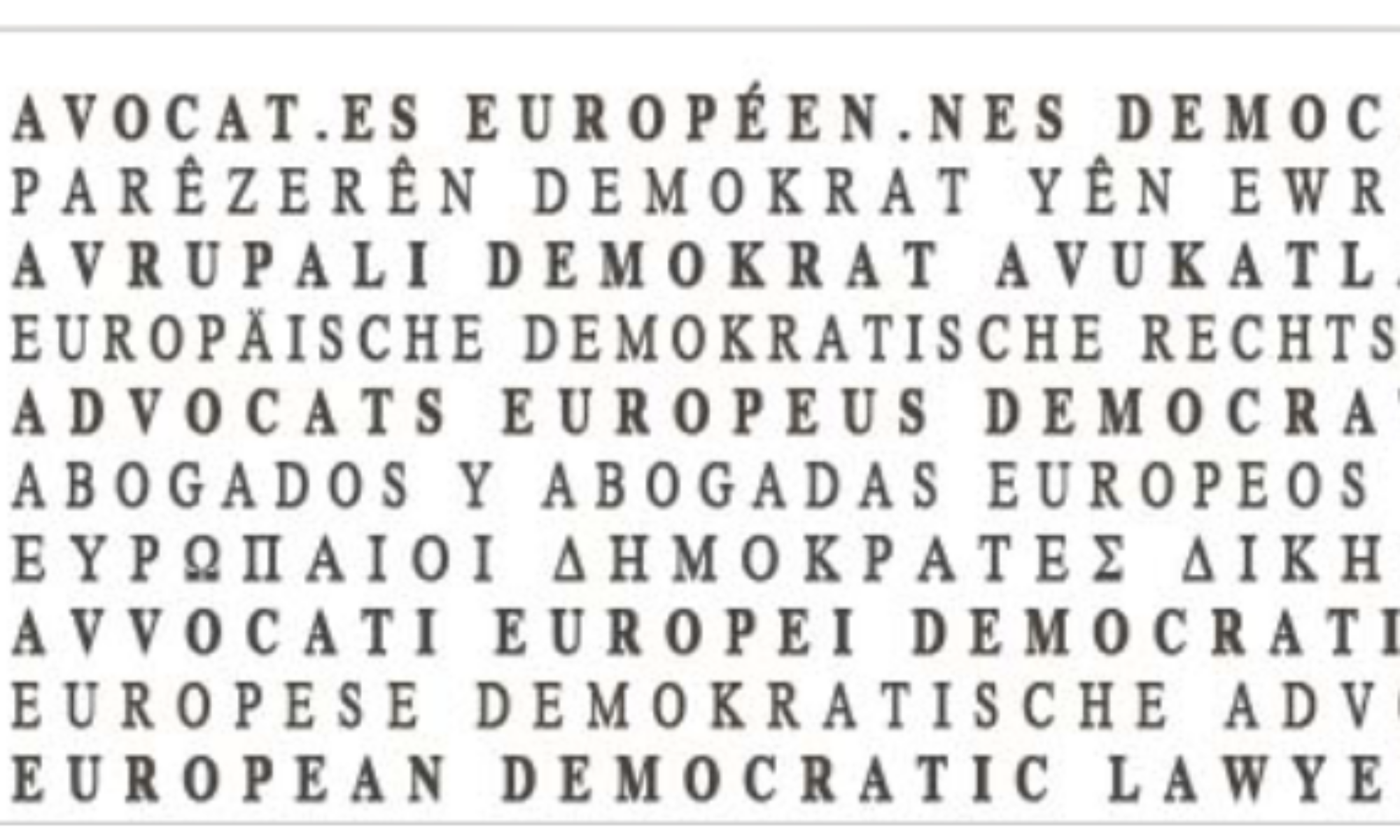23June2021–Attacks against lawyers in the Philippines continue to take place and killings have reached a record high since the start of President Duterte’s administration five years ago. We, the undersigned organizations,express our deep concern overthe attacksandtheoppressive working environment lawyersstill facein the Philippines. We call again on the Duterte Government to adequately protect the safety and independence of lawyers and end the culture of impunity in which these attacks occur.
Increased extrajudicial killings and harassment of lawyers
In our previous statement of 17 September 2019, we signalled that the number and intensity of attacks against lawyers had increased significantly since President Duterte took office on 30 June 2016. At least 46 jurists were extra-judicially killed between July 2016 and 5 September 2019. Among them at least 41 lawyers and prosecutors, of which 24 practicing lawyers. Eight jurists survived attacks on their life.
It is now reported that more lawyers have been killed in the five years since President Duterte took office than under any other government in Philippine history. The number of deaths of lawyers since 2016 has risen to 61. According to the Free Legal Assistance Group (FLAG) half of the lawyer killings since 2016 were work-related.The National Union of People’s Lawyers (NUPL) reports that at least 54of the 61 killings are likelyto bework-related. Many other lawyers are facing threats and are afraid that they might be the next victims of attacks.
Lawyers at risk
Lawyers involved in high-profileor human rightscases are especially at risk. These are cases in which they represent victims of human rights violations, government critics, political opposition leaders, human rights defenders,environmental activists, and people who are accused of terrorist-or drug-related crimes.Very often, the rights of the eliteor government policiesare at stake. Examples are cases about land rights of farmers and indigenous peoples, anti-drug operations, and the enforcement of measures to combat the Covid-19 pandemic. Lawyers also face reprisals for participatingin the public debate on legal matters and the protection of human rights.
Culture of Impunity
In a June 2020 report, the United Nations Office of the High Commissioner for Human Rights (OHCHR) concluded that ‘persistent impunity for human rights violations is stark’ and ‘practical obstacles to accessing justice are almost insurmountable’. The NUPL reached a similar conclusion: ‘almost all of the perpetrators have never been brought to the bar of justice’. According to NUPL, this climate of impunity emboldens perpetrators to commit further attacks.
Grave implications of public labelling and worrying new laws
Prior to being attacked, an increasing number of lawyers was labelled as “communist” or “terrorist” by state agentsand officials. This labelling takesplaceregardless of actual political beliefs or 2affiliationsof the targeted individuals and isaimed at making them legitimate targets. Following earlier fact finding missions conducted by independent lawyers and judges, the combination of labelling or ‘red-tagging’ and a culture of impunitywas already identifiedas one of the main root causes of extrajudicial killings in the Philippines. This practice continues unabated. OHCHR noted that alongside the intensified campaign against illegal drugs, the government of the Philippines has scaled up its response forcountering terrorism and conflicts.This also has an acute impact on civil society, including lawyers and judicial actors, “particularly through the phenomenon of “red-tagging”. The OHCHR found that “red-tagging” in de Philippines “has been a persistent and powerful threat to civil societyand freedom of expression”, adding that “[S]uch public labelling has proved extremely dangerous”. OHCHR referred to the example of four human rights defenders, including Attys Benjamin Ramos Jr. and Anthony Trinidad,who appearedon posters and hit lists claiming to depict members of alleged terrorists organizations,and were subsequently murdered. Despite national and international concern, the practice of “red-tagging”continues to take place and has also frequently been used by the Duterte administration itself. In a 7 June 2019 press release, eleven UN human rights experts already expressed their concern over this governmental practice andcalledon the UN Human Rights Council to establish an independentinvestigationinto human rights violations committed in the Philippines. “Instead of [the Government] sending a strong message that these killings and harassment are unacceptable, there is a rising rhetoric against independent voices in the country and ongoing intimidation and attacks against voices who are critical of the government, including independent media, human rights defenders, lawyers and journalists,” the experts said.In a July 2020 report, the Human Rights Commission of the Philippines stated that the ‘[P]president through his pronouncements created a dangerous fiction that it is legitimate to hunt down and commit atrocities against human rights defenders because they are enemies of the State’. All this is strengthened by the recently adopted Anti-Terrorism Act of 2020 (ATA 2020). Among its provisions is the creation of a government-appointed Anti-Terrorism Council that is given vast powers, including the power to designate individuals and groups as terrorists without due process. Critics and human rights groups have condemned the law for its overbroad definitions, vagueness, and dilution of human rights safeguards, calling it a weapon to target opponents and stifle free speech. A total of 37 petitions were filed to the Supreme Court after the law was enacted. Also lawyers have questioned the law before the Supreme Court, stating that the legislation could be abused to target administration opponents and suppress peaceful dissent. According to the July 2020 reportof the Human Rights Commission of the Philippines, the law “is prone to misuse”. The Commission worries that “the overbroad definition of terrorism gives the government unbridled power to determine who are “suspected terrorists” –which may include ordinary citizens and human rights defenders”. Once people are designated as terrorist they can be arrested and detained without warrants or charges for up to 24 days.
Consequences
The attacks against and extra-judicial killings of lawyers,the impunity shielding perpetrators, the continuous/increasedpractice of ‘red-tagging’, in combination with new laws and amendmentsthat risk eroding constitutional and other legal protections, such as the ATA 2020,impair the ability of lawyers to provide effective legal representation, make lawyersincreasingly waryof working on sensitive cases, and consequently severely undermine the proper functioning of the rule of law and the adequate protection of rights, including the right to remedies and fair trial.
International obligations
According to the United NationsBasic Principles on the Role of Lawyers (Basic Principles)1, States should ensure that all persons within their jurisdiction have effective and equal access to lawyers of their own choosing, and that lawyers are able to perform their professional functions without intimidation, hindrance, harassment or improper interference3. The Basic Principles require that lawyers are adequately protected when their security is threatened because of carrying out their legitimate professional duties, and not be identified with their clients or their clients’ causes. The Basic Principles affirm that lawyers, like other citizens, are entitled to freedom of expression and assembly.6The duty to respect and guarantee these freedoms forms an integral part of the Philippines’ international legal obligations under theInternational Covenant on Civil and Political Rights.
Recommendations
In view of the above, the undersigned organizations and individuals urge the Government of the Philippines to:
- Investigate promptly, effectively, thoroughly and independently all extrajudicial killingsand attacks against lawyers, and other jurists, with the aim of identifying those responsible and bringing them to justice in proceedings that respect international fair trial standards;.
2. Take all reasonable measures to guarantee the safety and physical integrity of lawyers, including the provision of adequate protection measures, in consultation with the persons concerned;.
3. Create and fully support an independent, credible and impartial body, i.e. not under the control or the influence of the government, composed of members selected exclusively from nominees from lawyers organizations, civil society, the Church and the like in a transparent way, who are known for their human rights record, independency and integrity; this civilian investigative body must be entrusted with the necessary investigative and prosecutorial powers to investigate promptly, impartially and effectively -under international supervisory mandate -all reports and complaints against state security agents with respect to extrajudicial killings, threats and other forms of harassment; the recommendations of this investigative body should beimmediately followed by the government.
4. Consistently condemn all forms of threats and attacks against lawyers publicly, at all political levels and in strong terms; and,
5. Fully comply with and create awareness about the core values underlying the legal profession, amongst others by bringing the UN Basic Principles on the Role of Lawyers to the attention of relevant stakeholders, especially members of the executive, police, and the military.
Signatories(in alphabetical order):
AIJA -International Association of Young Lawyers
Amsterdam Bar Association (Netherlands)
ASESORÍA JURÍDICA BOADA
Asian Legal Resource Centre (ALRC)
Associació Catalana per a la Defensa dels Drets Humans
Avvocati minacciati
Unione camere penali italiane
Bar HumanRights Committee of England and Wales
Burgas Bar Association
Confederation of Lawyers of Asia and the Pacific (COLAP)
Council of Bars and Law Societies of Europe (CCBE)
Deutscher Anwaltverein
European Association of Lawyers for Democracy andWorld Human Rights (ELDH)
European Criminal Bar Association
European Democratic Lawyers
Foundation Day of the Endangered Lawyer
Human Rights Embassy (Moldova)
Indian Association of Lawyers
International Bar Association’s Human Rights Institute (IBAHRI)
International Commission of Jurists
International Observatory of Lawyers in Danger
Law Council of Australia
Law Society of England and Wales
Lawyers for Lawyers
Lawyers’ Rights Watch Canada
Noord-Nederland Bar Association (Netherlands)
Progressive Lawyers Association(Turkey)
Rotterdam Bar Association (Netherlands)
Southern African Human Rights Defenders Network
The Arrested Lawyers Initiative
UIA-IROL (Institute for the Rule of Law of theInternational Association of Lawyers)
Download the full statement








